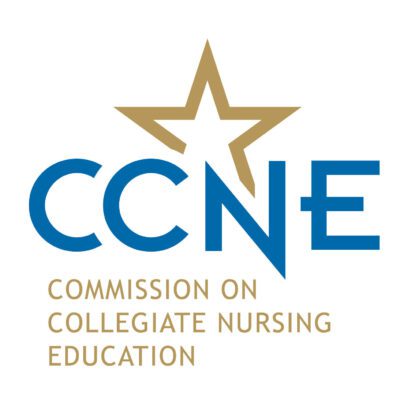Master of Science in Nursing: Transformational Leadership
A typical candidate for this track includes a nurse who has completed a bachelor’s degree in nursing and is interested in advancing their nursing leadership skills and business acumen. Candidates for the Master’s in Transformational Leadership are seeking to improve their communication, conflict resolution, and teamwork skills, while also advancing their understanding of decision making, healthcare finance, and budgeting. Candidates are also interested in improving both patient and organizational outcomes and desire to create change within the healthcare environment.

ADVANCE YOUR NURSING CAREER
Opportunity Abounds
several in-demand career opportunities require employees to understand the ways different aspects of healthcare and business and how they align for an organization to succeed, such as effective administration techniques, interprofessional collaboration, and improved outcomes. According to salary.com as of February 26, 2020, the average salary for a Chief Nursing Officer (CNO) in Illinois ranges between $200,000 to $277,000.
Accredited. The baccalaureate degree, master’s degree, and post-graduate APRN certificate programs in nursing at Olivet Nazarene University are accredited by the Commission on Collegiate Nursing Education.
Master of Science (MSN): Transformational Leadership FAQs
All courses are online; however, a student is required to complete a 120-hour practicum course with an approved, self-selected preceptor towards the end of the track.
While much of the learning takes place online, MSN-TL students will need to complete their practicum hours in an approved state. Please contact your state board of nursing to verify if our program meets their educational requirements.
Transfer credit may be given for up to 6 credit hours for the Education and Transformational Leadership tracks and up to 9 credit hours for the FNP and Post-Graduate FNP tracks of graduate credit with a grade of B- or higher for any of the MSN core courses listed below. Courses may be accepted as a substitute for comparable core courses in programs that permit transfer credit if work was completed within five years of a student’s Olivet matriculation. Note: For a transfer credit request similar to the NRSG 679/680 (four total credit hours) course, the maximum credit hours that can be transferred is three credit hours. Course transfers convert the credit hours achieved from a course at another college/university to credit hours at Olivet. Transfer credit may be given for the following Olivet courses after review for syllabi similarity.
- NRSG 626: Moral/Ethical Decision Making
- NRSG 628: Nursing Informatics
- NRSG 653: Theoretical & Professional Foundations of Nursing
- NRSG 679: Evidence-Based Practice I
- NRSG 680: Evidence-Based Practice II
All students must submit a “Request to Transfer Credit” form, the course description(s), and a copy of the catalog cover, and the course syllabus to the program director/coordinator prior to beginning a graduate program. To determine transferability of credit, please contact the appropriate program director to receive a recommendation for transfer.
In addition to the General Admissions Requirements, the applicant must:
- Complete an application.
- Submit an official transcript from a regionally accredited college or university showing an earned Bachelor of Science in Nursing (BSN) degree.
- Submit transcripts from any accredited institutions attended, where pre-requisites for a nursing program and BSN nursing courses were completed, and any completed nursing graduate coursework.
- Have attained a BSN undergraduate grade-point average of 3.0 or better (4.0 scale).*
- Submit a current, unencumbered registered nurse (RN) license in a geographical jurisdiction of the United States.*
- Have successfully completed (defined as a grade of C or above) an approved undergraduate statistics course. An official transcript for same should be submitted.
- Submit a signed consent regarding criminal background and drug screening requirements.
- Submit evidence of having worked as an RN for at least 2,000 hours prior to starting the respective clinical/practicum tracks (ED: NRSG 634, FNP: NRSG 665, & TL: NRSG 648).**
- Students may not be admitted to the Olivet MSN program who have been dismissed from another MSN program.
*Students who do not meet these criteria, please speak with an Admissions Counselor about a possible conditional admission.
** Students who do not meet these criteria, please speak with an Admissions Counselor about a possible conditional enrollment.
When choosing your career path, an MSN in Transformational Leadership may offer a multitude of opportunities. To begin, business skill development can translate across several industries, as opposed to degree programs that focus solely on field-specific knowledge. Additionally, several in-demand career opportunities require employees to understand the ways different aspects of healthcare and business and how they align for an organization to succeed, such as effective administration techniques, interprofessional collaboration, and improved outcomes. There is a positive career outlook for this degree. A typical work week for nurse leaders includes 40+ hours a week. According to salary.com as of February 26, 2020, the average salary for a Chief Nursing Officer (CNO) in Illinois ranges between $200,000 to $277,000. The salary ranges widely depending on several factors such as education, certifications, additional skills, and years of experience. It is important to note that almost half of the jobs in nursing leadership are currently held by those late in their career.
Potential career options:
- Chief Executive Officer
- Chief Nursing Officer
- Director of Nursing
- Director of Patient Care Services or Director over several units within a hospital
- Manager of a health care provider clinic
- A Coordinator/Director of Outpatient Care Centers
- Manage/Lead Home Health Care Services, or Long-term care facilities
- Work at Colleges, Universities and/or Professional Schools in leadership
- Work in the Pharmaceutical and Medicine Manufacturing Industry
- Work in Biomedical Companies
- Work in a technology company directing healthcare service needs
- Manager
- Nurse Entrepreneur
- Consultant
Discounts are available for our practice partners, alumni, and faculty. Upon completion students should check out government loan repayment programs such as the Nurse Faculty Loan Repayment Program. For a compiled list of available scholarships click here!
- Certified Nurse Manager and Leader (CNML)
- Depending on a student’s work experience a student may be able to obtain the CNML certification. Students must have work experience in the role and successfully pass a certification exam by American Organization for Nursing Leadership (AONL) in order to obtain a certification. Candidates are eligible if they have a valid and unrestricted RN license and a baccalaureate in nursing degree or higher plus 2080 hours of experience in a nurse manager role. For more information on the eligibility requirements and examination please review the CNML Examination and Program Handbook.
- Certified in Executive Nursing Practice (CENP)
- The eligibility criteria for the CENP certification is as follows:
- “a candidate must meet the target practitioner definition,”
- Target Practitioner Definition: “The nurse executive sets the vision for nursing practice in the delivery of safe, effective and efficient patient care. With an interdisciplinary approach, the nurse executive demonstrates leadership in business skills and principles, knowledge of the healthcare environment, communication and relationship management and professionalism. This includes elements of evidence-based practice, ethics, influencing behavior, accountability, clinical leadership quality improvement, strategic management, teamwork, and mentoring. The nurse executive advocates as the voice of the patient, family and the nursing profession.” Taken from the CENP Handbook
- must have a valid and unrestricted RN license,
- hold a Master’s degree or higher (one in nursing) plus, two years of experience in an executive nursing role.
- “a candidate must meet the target practitioner definition,”
- The eligibility criteria for the CENP certification is as follows:
Our school is dedicated to supporting MSN-TL students throughout their practicum placement process. Initially, students are encouraged to leverage their personal and professional networks to find a preceptor and practicum site, allowing them the opportunity to choose a location and preceptors with whom they might already be familiar or prefer. This autonomy in selection is highly beneficial, as it allows students to align their practicum experience with their specific interests and geographical preferences.
However, we also recognize that finding a preceptor can be challenging. If a student is unable to secure a preceptor after 30 attempts, our MSN/FNP Practicum Director will provide substantial assistance. At this stage, the MSN/FNP Practicum Director works closely with the student, employing the school’s resources and networks to ensure a placement is found. While this collaborative effort prioritizes securing a quality educational experience for the student, it may not always align with the student’s preferred location. The emphasis shifts towards the importance of completing the practicum at a site that offers a comprehensive learning opportunity, even if it means considering locations beyond the student’s initial preferences.
Continuing Education
This MSN includes the Post-Master’s Transformational Leadership Certificate
Learn more about all the Olivet Nazarene University School of Nursing Post-Graduate certificate offerings here.

Success Beyond Degree
Earning your advanced degree is a journey that begins with a single step. We believe higher education has a higher purpose. Start your journey at Olivet Nazarene University.

